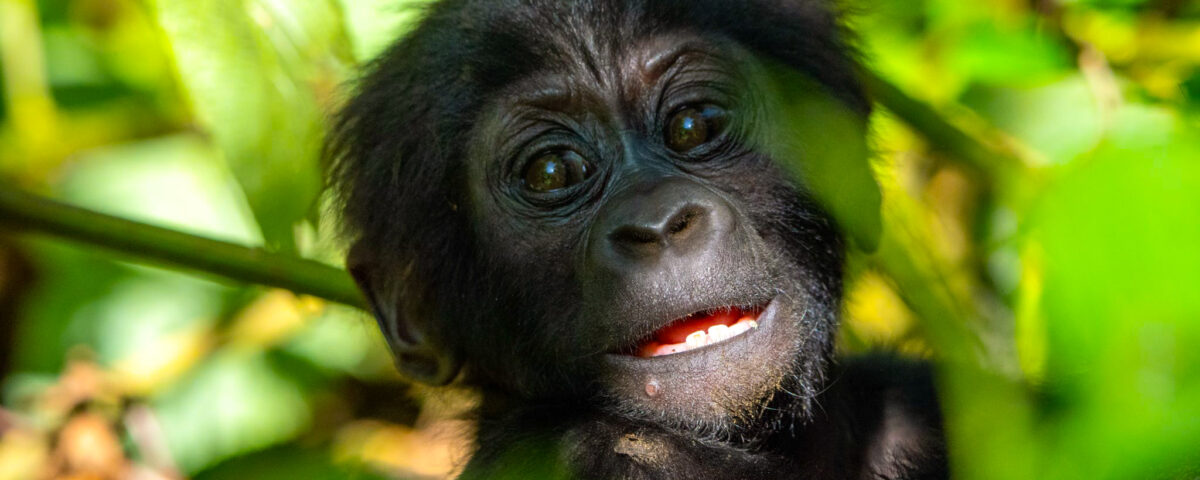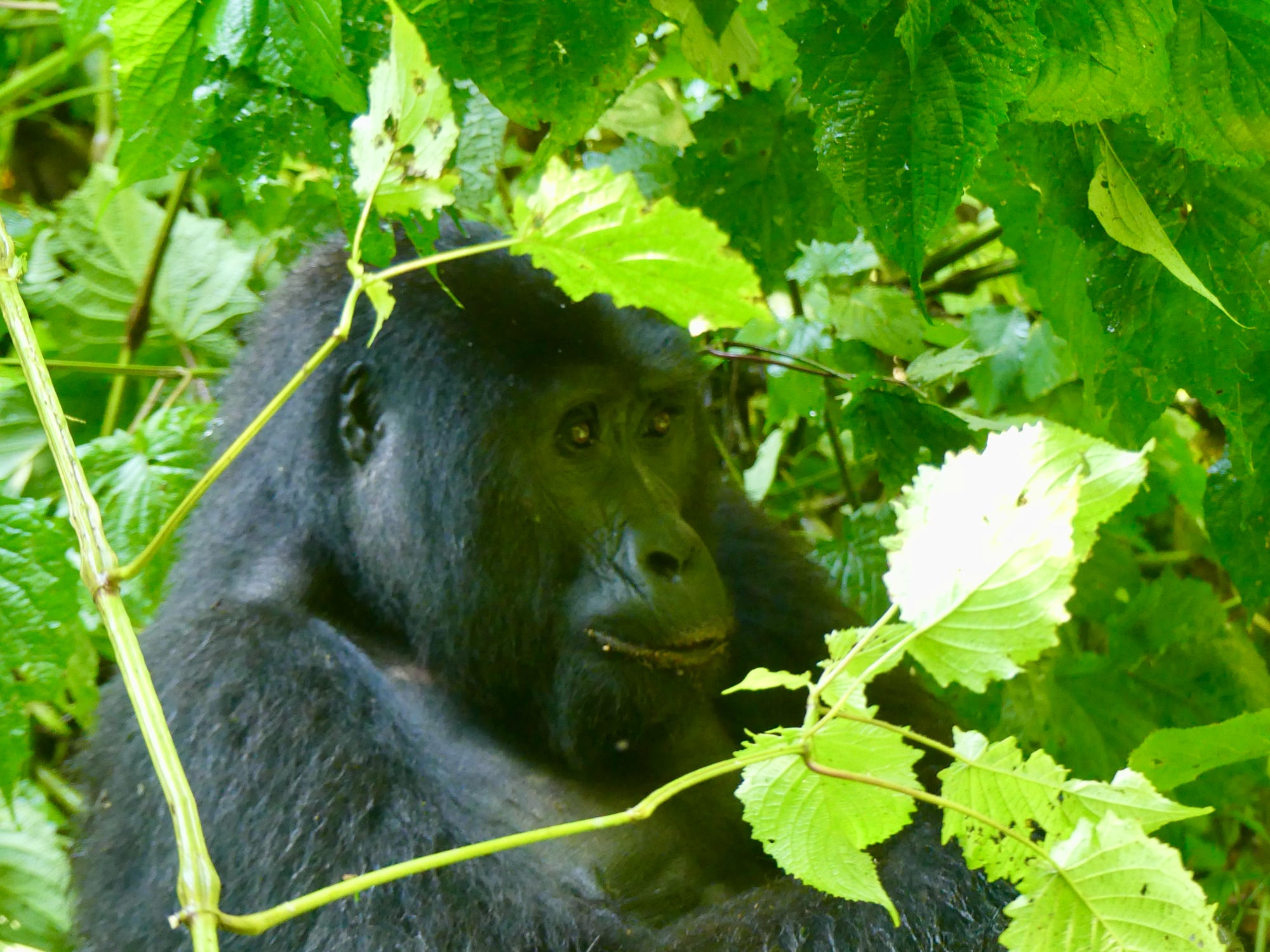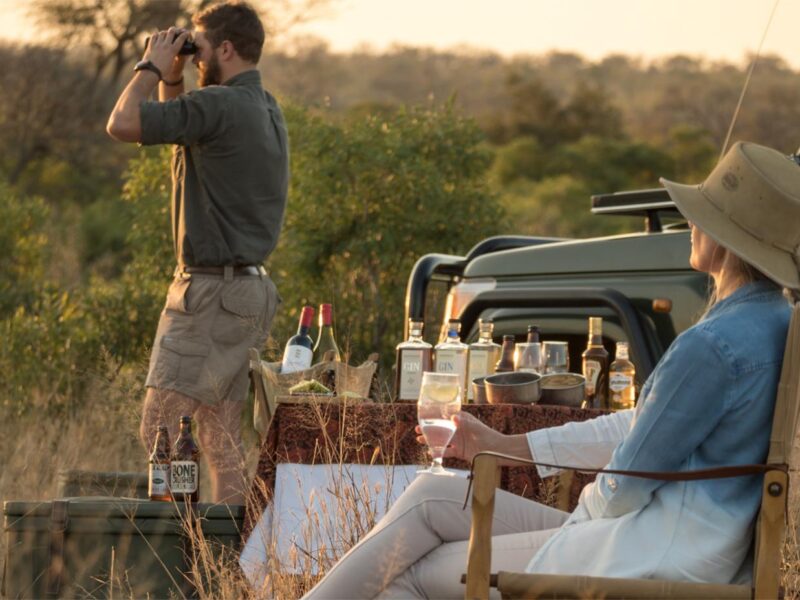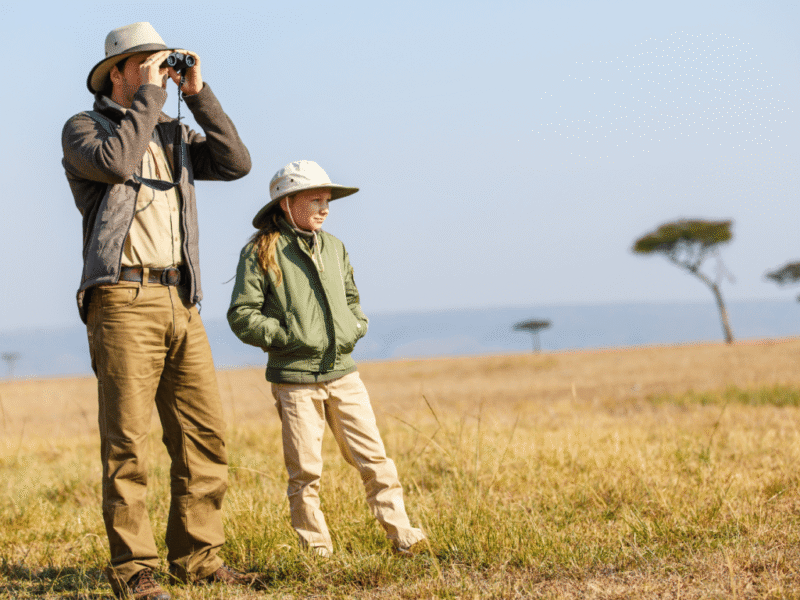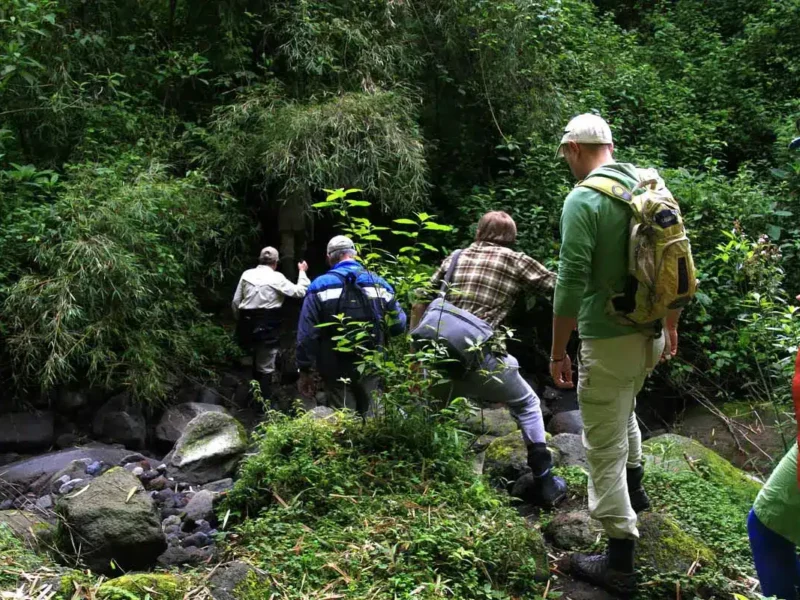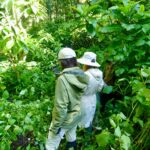
What to Do If a Gorilla Attacks
July 23, 2025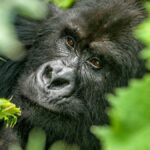
Budget Gorilla Trekking in Uganda
July 23, 2025How Humans Can Help Protect Gorillas in Africa
Gorillas, our closest relatives in the animal kingdom, are under severe threat.
Across Africa, especially in countries like Uganda, Rwanda, and the Democratic Republic of Congo, mountain gorillas and their lowland cousins face a range of challenges caused by human activity.
From habitat destruction to poaching and disease transmission, the threats are real and urgent. However, humans also hold the power to protect and preserve these majestic creatures through targeted conservation actions.
This blog explores the major ways we can help protect gorillas in Africa, with a focus on supporting conservation organizations, combating poaching, promoting sustainable tourism, and advocating for responsible sourcing of forest products.
Supporting Conservation Organizations
One of the most impactful ways to protect mountain gorillas is by supporting reputable conservation organizations that dedicate their work to the survival of these great apes.
When tourists, philanthropists, and international partners contribute to these initiatives, they help fund long-term strategies that protect mountain gorillas. Every dollar supports field operations, conservation training, and anti-poaching enforcement. For effective gorilla conservation in Uganda, building partnerships with grassroots and international NGOs remains essential.
Combating Poaching and Illegal Wildlife Trade
Poaching remains one of the most significant threats to gorilla survival. While gorillas are not typically targeted for bushmeat in Uganda as much as in other countries, they often become collateral damage in snares intended for other wildlife. Additionally, the illegal pet trade and trophy hunting still exist in some parts of Central Africa.
Human intervention is key to disrupting these illegal activities. Anti-poaching units, often supported by conservation organizations and national governments, patrol protected areas to deter poachers and dismantle traps. In Uganda, the Uganda Wildlife Authority has trained rangers specifically to handle wildlife crime, and their efforts have led to a reduction in poaching incidents in Bwindi Impenetrable National Park.
Technology also plays a growing role. Innovations such as camera traps, drones, and GPS tracking enable better monitoring of gorilla populations and identification of poaching hotspots. Furthermore, collaborations with local communities provide alternative incomes and reduce incentives for illegal activity.
Combating poaching is not just about enforcement; it involves education and providing people with economic alternatives. Sustainable farming, ecotourism jobs, and conservation-related training can transform former poachers into guardians of wildlife. These efforts are critical if we are to truly protect mountain gorillas and ensure their future.
Promoting Sustainable Tourism in Africa
Sustainable tourism is a powerful conservation tool. When managed responsibly, gorilla trekking offers economic incentives to preserve forests and wildlife. In countries like Uganda and Rwanda, gorilla tourism has become a major source of revenue and community development.
In Uganda, Bwindi Impenetrable Forest is a prime destination for gorilla trekking. Here, tourists pay for permits to visit habituated gorilla groups under the supervision of trained guides. The permit fees directly support conservation and local community projects, including schools, health clinics, and infrastructure. These benefits create strong community buy-in and reinforce the importance of protecting gorilla habitats.
However, the success of this model depends on responsible tourism practices. Guidelines such as maintaining a safe distance from gorillas, avoiding direct eye contact, and limiting daily visitor numbers help reduce stress and disease transmission to the gorillas. Uganda Wildlife Authority strictly enforces these rules to ensure that tourism remains a force for good.
Sustainable tourism also promotes cross-sector collaboration between governments, private tour operators, and conservationists. When properly executed, it becomes a model of conservation that benefits wildlife and people alike. As a result, sustainable tourism in Africa stands out as a major success story in wildlife conservation.
Advocating for Responsible Sourcing of Forest Products
One of the less discussed but equally important aspects of gorilla conservation is the need to reduce habitat destruction caused by unsustainable harvesting of forest products. Activities such as illegal logging, charcoal burning, and agricultural encroachment reduce the space available for gorillas to live and thrive.
Encouraging responsible sourcing helps tackle one of the root causes of habitat loss. It’s not just a local issue—it’s global. Consumers in Europe, North America, and Asia must understand that their choices can indirectly impact the survival of gorillas thousands of miles away. As we push for more transparency in supply chains, we also push for stronger wildlife protection efforts in Africa.
Real-World Success Stories in Gorilla Conservation
Despite the threats, there is hope. Conservation efforts have led to remarkable success stories. In 2018, the mountain gorilla was reclassified from “critically endangered” to “endangered” thanks to dedicated conservation work. The population has grown steadily, especially in Bwindi Impenetrable Forest and the Virunga Mountains.
Organizations like Conservation Through Public Health (CTPH) in Uganda have pioneered a one-health approach that links the health of people, animals, and ecosystems. Their work in Bwindi includes community health programs that reduce disease transmission between humans and gorillas while also empowering local families through health education and income generation.
Another shining example is the Revenue Sharing Program led by the Uganda Wildlife Authority. A percentage of tourism revenue is invested directly into communities near gorilla parks. This helps reduce human-wildlife conflict and builds a shared sense of responsibility for conservation.
These examples show that with collaboration, commitment, and sustained investment, we can turn the tide for gorillas in Africa. By learning from these models, we can replicate success across other vulnerable habitats.
Our Role in Protecting Gorillas
Every individual, whether living in Africa or abroad, can play a role in gorilla conservation. By supporting conservation organizations, helping fight poaching, choosing responsible tourism options, and advocating for sustainable sourcing, we contribute to a global effort to protect mountain gorillas.
The survival of these magnificent creatures depends on our choices. The fight for gorilla conservation is not just about animals it’s about protecting biodiversity, supporting local communities, and preserving one of Earth’s most awe-inspiring species for generations to come.
Let us choose to be guardians, not just observers. Together, we can ensure a future where gorillas continue to roam the lush forests of Uganda and beyond, wild and free.
Beyond Gorillas: Other Safari Activities You Can Add in Uganda
A frequently asked question is: Can I add classic safaris or adventure tours to my Uganda gorilla trekking trip? The beauty of Uganda is how easily you can blend multiple ecosystems and experiences into one journey.
From Rushaga, many travelers travel north to Queen Elizabeth National Park, famous for its tree climbing lions in Ishasha, boat cruises along the Kazinga Channel, and stunning savannah scenery. Or head further north to Murchison Falls National Park, where the Nile River squeezes through a narrow gorge, creating one of Africa’s most powerful waterfalls and a rich habitat for elephants, giraffes, and buffalo.
For primate enthusiasts, chimpanzee trekking in Kibale Forest National Park offers a thrilling contrast to gorilla tracking. In just one safari, you can see our closest relatives alongside mountain gorillas an experience found in few countries on earth.
Adventurers often ask, What if I want adrenaline after my gorilla trekking safari? Jinja, the adventure capital of East Africa, offers white-water rafting on the Nile, kayaking, horse riding, and bungee jumping.
Finally, unwind at Lake Bunyonyi or Lake Mutanda both famous for peaceful canoe trips, birdwatching, and breathtaking views that soothe after the forest’s intensity.


